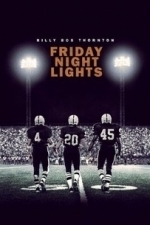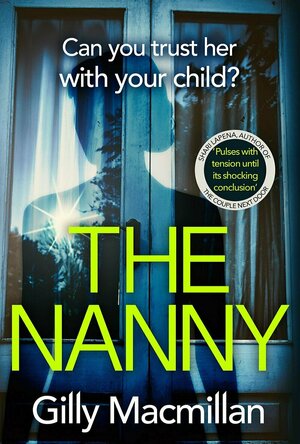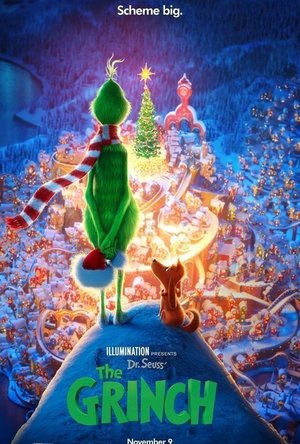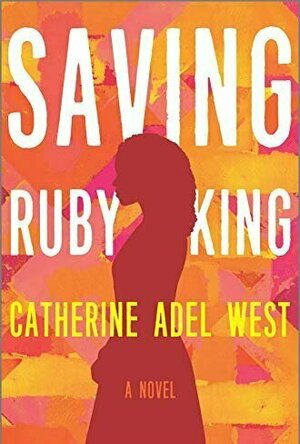Gareth von Kallenbach (980 KP) rated Friday Night Lights (2004) in Movies
Aug 14, 2019
One prime example of this is in the town of Odessa Texas, where every fall young men embrace the rituals of football as their ticket to bigger and better things in life, and where local merchants close their shops less than miss a single moment of the biggest show in town, the Perriman Panthers.
In the new film &”Friday Night Lights”, audiences get a firsthand look at the trials and tribulations that the team endured during its 1988 season that had previously been covered in the book of the same name by H.G. Bissinger which centered much like the film on the racial and economic overtones of the community.
The film stars Billy Bob Thornton as Coach Gary Gaines a man who despite a string of winning seasons and State Championships to his credit is under pressure to deliver not only a championship team, but an undefeated season as well. The players feel the pressure to, as every person they encounter on the eve of their season is quick to remind them to win it all and go undefeated.
While the first game starts as an enjoyable romp for Perriman and fans it soon becomes tragic when all everything running back Boobie Miles (Derick Luke), injures his knee and as a result the team is routed in it’s next start causing the world to fall in around the coach as disgruntled local fans go so far as to clutter his home with for sale signs following a single loss.
Undaunted the team picks itself up and finds a way to get back to its winning ways and make a run for the state tournament. Along the way the players will be saddled with the standard issues including but not limited to injuries, self-doubt, an abusive father, a sick parent, and local pressure from rabid fans that will not accept anything short of an undefeated season.
While the game scenes of the fill are well done, as Director Peter Berg mixes footage of the 2003 Perriman team with recreated scenes to create a dynamic and engrossing recreation of the game that is perhaps one of the best ever captured on film. Sadly, the game sequences are the only good part of the film as when the story deviates from the actual games, it becomes bogged down in boring sentiment and sports film stereotypes that are so over used, the film has little tension or surprises as I was easily able to see what was coming.
As if this was not bad enough, Thornton is mostly wasted as aside from a few good one-liners, he is reduced to the stern coach with the heart of gold. We know his character loves his family and his team but we do not know what drives and motivates the man. Worse yet, the team is made up of generally bland and unremarkable individuals who do not gain much sympathy from the audience as they are so bland I found myself caring little as to their outcomes.
The more I watched the film, the more I kept being reminded of “Varsity Blues” which compared to “Lights”, is a much better film in almost every aspect. My advice, save this one for a rental.
"I'll never be able to change this place, but if we stay here long enough, I'm afraid it will change my daughter and me."
I've loved Gilly Macmillan and her books since I won one of them in a Librarything giveaway a few years ago. She's an excellent writer, and I quite enjoy how different each book is from the next. This one was very different and quite unexpected. It's told from a variety of alternating viewpoints--the primary ones being Jocelyn and her mother, Virginia, but we even get a local policeman and a mysterious woman dating back to the 1970s. I liked the way Macmillan wove all of of these perspectives together. At first, it seemed really easy to trust everyone, and then quickly, you realize that you can't be sure if you can believe either Jo or her mother.
I don't want to go too far or reveal too much, because it's probably better to let most of the plot reveal itself organically, but it's definitely easy to say that much of the book is a little befuddling (in a good way). I found myself drawn to Ruby, the young girl, and oddly, Virginia, despite her history as a pretty terrible parent. Jo frustrated me, with her somewhat naive nature. She would trust some things at face value, yet not others, and I wanted to shake her at points.
There are definitely some convoluted plot points in this one--there's quite a saga with the Holt legacy. I didn't really question it while I was reading, but after, I find myself wondering if it was all necessary. Still, I loved reading about the slightly faded grandeur of Lake Hall--it's just not something you get in America, and it's fun to picture when you read these type of novels. Macmillan does an excellent job of portraying her characters and the setting.
I definitely was caught up in the plot. I thought I had it figured out for a while, then I realized I didn't, and then the ending was a little crazy. I'm still not a 100% sure about it, but I appreciate Macmillan for embracing it. Overall, I enjoyed the varying viewpoints and the slightly fusty, aristocratic setting. I was interested in the characters and wondering what happened with Hannah. A few things seemed a little far-fetched, hence my 3.5-star rating, but still a good read.
Darren (1599 KP) rated The Grinch (2018) in Movies
Feb 16, 2020
Story: The Grinch starts as we head to Whoville as they are preparing for Christmas the happiest time of the year for the town, only The Grinch sits above the town hating the holiday and everything about it with his dog Max.
AS Whoville is trying to have the biggest Christmas of all time, he plans to destroy Christmas once and for all, while a county Who Cindy-Lou is looking to ask for the simplest gift, help for her mother Donna that has been raising the children alone.
Thoughts on The Grinch
Characters – The Grinch is the grumpy who that lives above the town with Max the dog, he hates Christmas the most, he decides that this year is the year that he steals Christmas from the rest of the town, because of his own hate, this is a more cunning plan than the live action film gave us. Cindy-Lou is the one of the youngest members of the town, she wants to wish for help for her mother who is raising her siblings alone while working. She has a plan to try and capture Santa to make this wish in person. Donna is the single parent that has been raising her children alone, while working nights, she does well keeping things together without letting it show too much to her kids. We do have the other young whos that are helping Cindy, and we get Max who gets plenty of laughs with Grinch.
Story – The story here follows the Grinch who decides he wants to steal Christmas from the town who are always rubbing it in his face, while a plucky young girl wants to ask for something more than just a present. This is the second film version of the book I have seen, it is clearly a lot better than the Ron Howard version, holding together the clever dialogue Dr Seuss was famous for, it does ditch the personal back story of the Grinch which does help show him to be a wacky villain always planning, while giving the story a big heart with how the little girl wants what is best for her mother, this is a joy to watch because it is true to what Christmas is really about.
Fantasy/Family – The family message in this film is clear, this is the highlight of the film which is a joy to see, being together is important, whether it true family or people you can call family, while the fantasy side of the film is the world we are thrown into, which does work for the film.
Settings – The small town is always going to work for the film, it shows the unity within one town over the isolation of the Grinch that he is feeling.
Animation – The animation looks wonderful through the film which helps make the film more enjoyable, being able to give us the wacky moments and slapstick working in a way only animation can pull off.
Scene of the Movie – The present.
That Moment That Annoyed Me – Not knowing the book, so not sure if it is closer or not.
Final Thoughts – This is a joyful Christmas film that could be enjoyed by all, it hits the right marks through the film with ease and gets laughs whenever you need it.
Overall: Christmas Joy.

Read Me Stories: Learn to Read
Education and Book
App
In just 15 minutes a day, teach your child to read with confidence using Read Me Stories. Read Me...

WeDo 2.0 LEGO® Education
Education
App
WeDo 2.0 makes coding a reality for elementary students. Using LEGO® bricks, easy-to-use software...
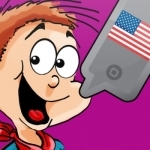
Learn To Talk First Words – Preschool, Kindergarten Flashcards
Education and Games
App
- The original Learn To Talk was featured in App Store's What's Hot in and ranked #4 in Education -...

Bible Board Games for Kids
Book and Education
App
Engage your kids with the Bible with fun and faithful Games, Movies and Activities. • 180 Bible...

Cry Translator
Medical and Lifestyle
App
Now, you can easily figure out what your baby needs with the Cry Translator. This award winning...
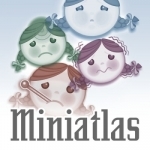
Miniatlas Pediatrics
Medical and Health & Fitness
App
The Miniatlas Pediatrics is the perfect pocket tool for physicians. With just a few taps on their...
Kristy H (1252 KP) rated Saving Ruby King in Books
Jun 18, 2020
"I'm stitched together by the lies I tell myself and the lies people want to believe about me." ~Alice
I found this excellent and timely book to be incredibly well-written, with a power and tenderness to it that goes far behind your typical debut novel (I had to double check that this was actually West's first novel, I was so impressed).
West tells her story from a variety of points of view--Ruby; her late mother, Alice; her father, Lebanon; her best friend, Layla; Layla's father, a pastor; and more. We even hear from a central figure in all of these characters' lives--their church, via its omnipresent voice. The plot spans generations, with West giving a nuanced look at each of her complex characters. She does an amazing job of showing the power of family, for both good and bad. How choices can affect generations: one person's bad decisions can pass poison on, with children reliving dysfunction and sins.
"How can there be a me without her?" ~Ruby
No one is simply good or bad here, though Lebanon is not an easy-to-like man. Abused and neglected by his own parent, Sara, we see how Sara's neglect has turned Lebanon hard. But West is such a good writer that Lebanon is not a one-dimensional bad guy, as much as you want to hate him. I was incredibly impressed at how she could create sympathy for so many of her players, even when they did despicable things.
"Without Sara, who do I blame for...being me? Are children supposed to forgive their parents for the horrible things they've done?" ~Lebanon
This novel does an impressive job at delving into racism, domestic abuse, and sexual assault and trauma. The city of Chicago appears as its own character, springing to life via West's lovely prose. She expertly shows the difficulties black people face on the south side (and in general). I read this book during George Floyd's murder and found myself highlighting passages about police brutality that just hit me right in the gut. It's very powerful.
West's book features a variety of characters--they can be hard to keep track of at first, and I was glad to have the family tree in the beginning of the book. A few times the plot felt repetitious and the middle dragged a bit, but it picked up in the second half. There's a surprising amount of twists and turns. Overall, this is a realistic look at racism and domestic violence, but also friendship. It's quite well-written and layered with a twinge of hope throughout. I can't wait to see what West writes next. 4+ stars.
